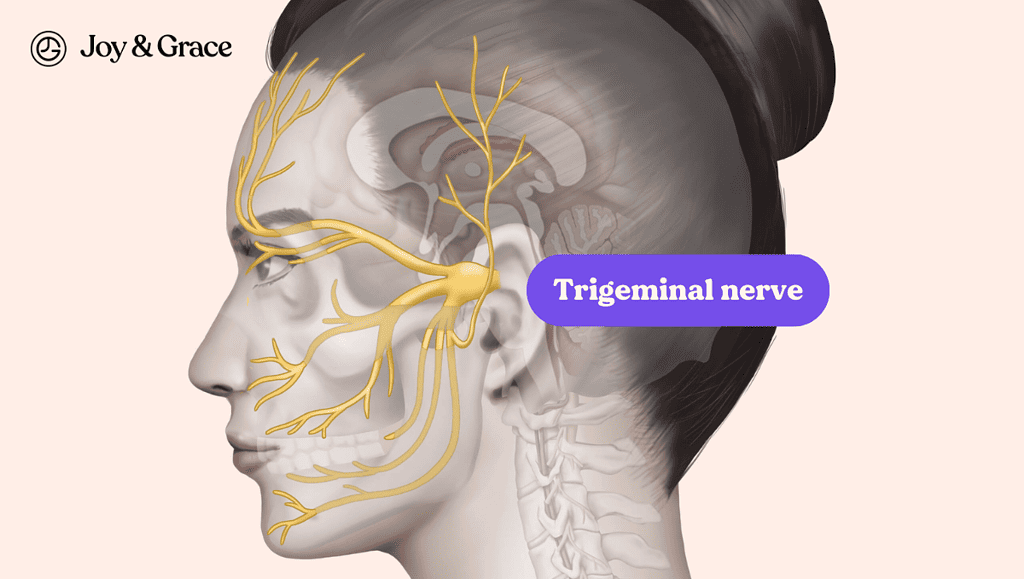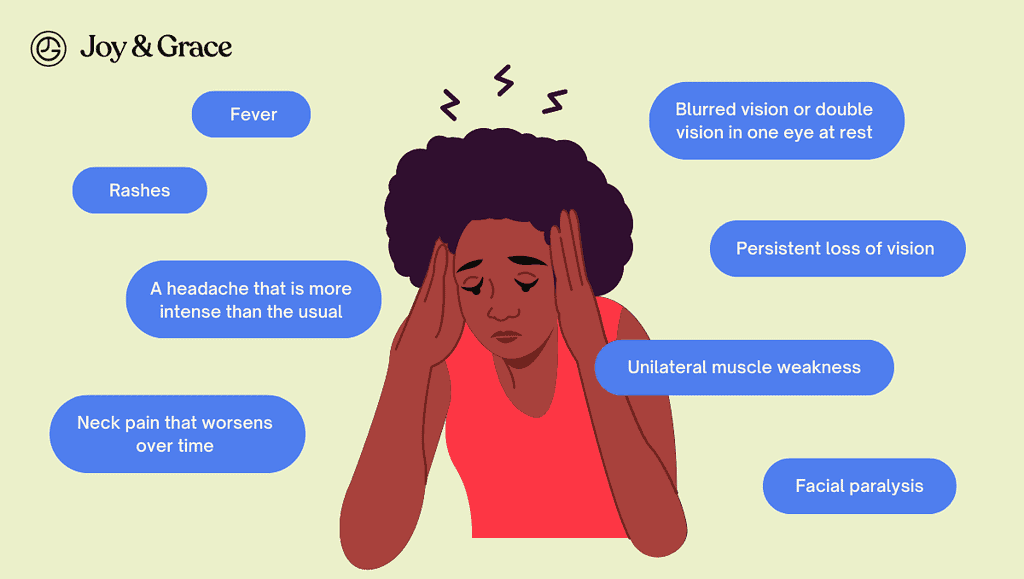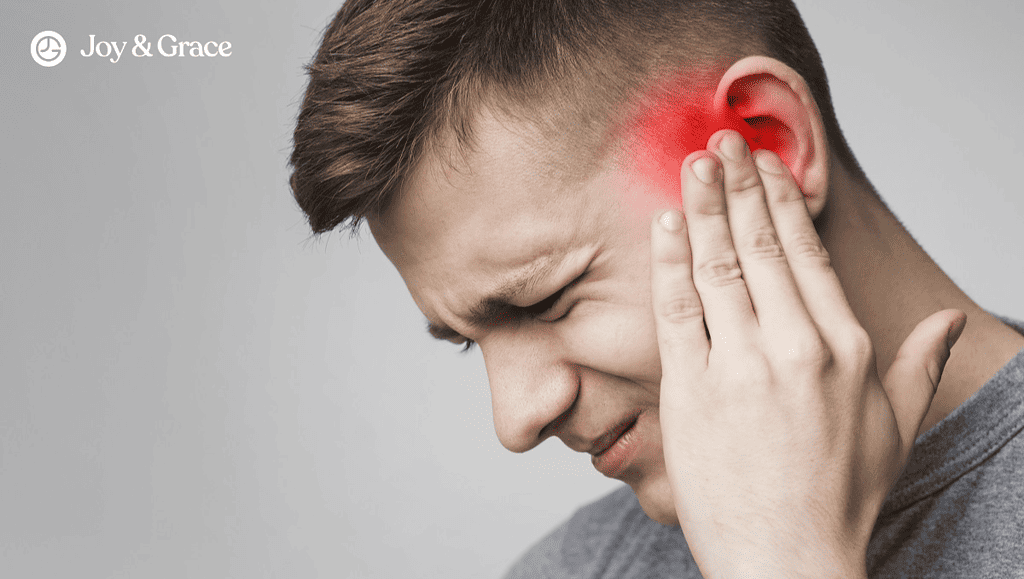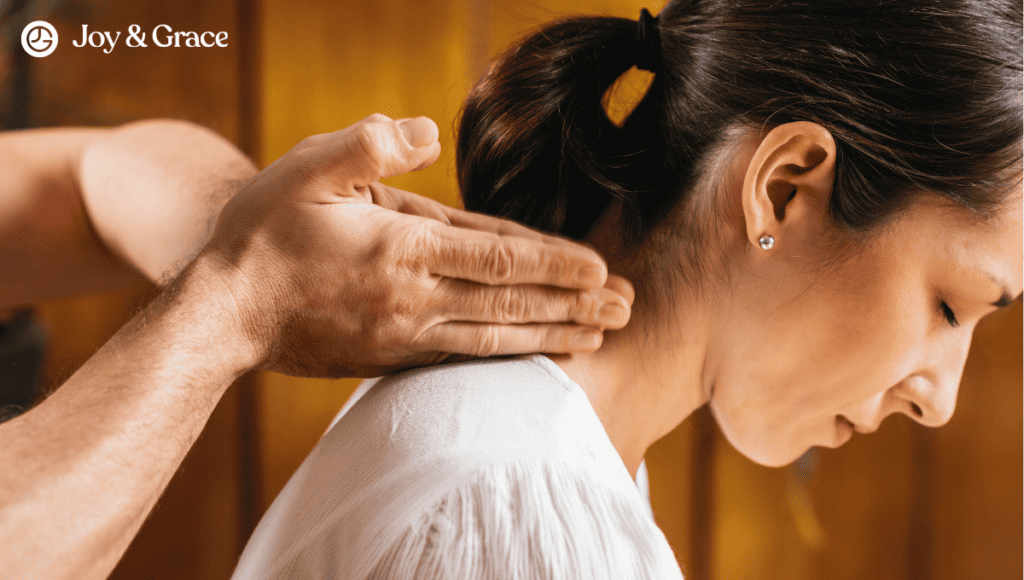One out of six Americans suffer from migraines. Despite being a common problem, the reason why it happens remains a mystery. Symptoms vary a lot from person to person, which makes things even more confusing.
What does it mean if you have a pounding headache, ear pain, and neck pain at the same time? We’ve looked into the link between migraines and ear and neck pain, its causes, and treatment.
Can Migraine Cause Ear And Neck Pain?
Yes. Ear pain and neck pain are common symptoms of migraines. According to studies, 89% of migraine patients complained of neck pain, while 77% had intense ear pain.
Migraine is a nervous system disorder that causes an intense, throbbing headache. Other symptoms include sensitivity to light or noise, nausea, vomiting, and dizziness. These symptoms can occur all at once but usually appear in particular phases.
Researchers aren’t sure of the exact cause, but they agree that it involves genetics and abnormal trigeminal nerve activation.
What Causes Ear Pain With Migraine?

Migraines cause ear pain by virtue of the trigeminal nerve and its many branches within the ear. During a migraine attack, trigeminal nerve activation results in “otalgia” or ear pain.
This process can also cause vertigo in some migraine patients. If you also experience this symptom, then you may have vestibular migraine.
What Is A Vestibular Migraine?
Vestibular migraine, or migraine-associated vertigo, is a form of migraine that causes vertigo. Vertigo in vestibular migraine can occur without headaches and can differ in severity over a person's lifetime.
Researchers don’t know why some people get vestibular migraines, but they think vertigo is a form of a migraine aura. An aura is a sensory disturbance that occurs right before a migraine attack. These auras can be
- Visual Auras - These are the most common auras that people experience. You might see floating spots, lines, zig-zags, or flashes of light. In some cases, people might lose vision for a short period.
- Sensory Auras - These can feel like pins and needles in the fingers and mouth but can also occur all over the body.
- Dysphasic or Aphasic Auras - These are rare migraine auras that cause people to have trouble remembering words or speaking.
These auras come on slowly and get stronger and stronger over time.
Yet, other studies reject the aura theory and believe that vertigo is a direct manifestation of migraines.
What Does A Vestibular Migraine Feel Like?
Vestibular migraine has the same symptoms as a typical migraine, including:
- Nausea and vomiting
- Sensitivity to light or noise
- Severe, throbbing headache on one side of the head.
But the main symptoms of vestibular migraines are vertigo, imbalance, and motion sickness. Unlike regular migraines, headaches don’t always occur in vestibular migraine.
Since vestibular migraines involve the structures of the inner ear canal, you may also feel the following symptoms:
- Ringing in ears (called tinnitus)
- A sensation of ear fullness or pressure
- Ear pain
Can Migraines Cause Ear And Jaw Pain?
As mentioned earlier, researchers think migraine-associated ear pain involves trigeminal nerve activation. Since the trigeminal nerve also innervates the jaw, any abnormal nerve activation can cause pain in the jaw.
There is a give-and-take type of relationship between migraines and jaw pain. If migraines can cause jaw pain, then jaw pains can also trigger migraines. Disorders of the jaw, called temporomandibular joint (TMJ) disorders, can inflame the tissues of the jaw. This inflammation may irritate the trigeminal nerve, causing migraine symptoms.
Is It Normal To Have Neck Pain With A Migraine?
“Neck pain is a very common symptom of migraine. It’s actually much more frequent than nausea and is also highly predictive of migraine onset.”
Dr. Rashmi Halker Singh, a neurologist at the Mayo Clinic
In one study, neck pain often occurs during a migraine attack's prodromal and headache phases. This neck pain can be cramp-like or tender in nature. The stiffness and pain when moving the neck may also go with the neck pain.
Researchers believe that this is because spinal nerves meet at the trigeminal nucleus. The trigeminal nucleus is one of the structures implicated as a cause of migraine.
What Are The Migraine Triggers?

Remember the saying that prevention is always better than cure? Well, the best way to avoid migraines is to identify your triggers and stay away from them as much as possible. The following are migraine triggers you can avoid:
- Caffeine. The role of caffeine in migraines is a double-edged sword. According to a study, prolonged caffeine intake can make you more prone to having more migraines in the future. However, sudden cessation of coffee intake and coffee withdrawals can trigger migraines. So moderation is key.
- Alcohol. Like coffee, moderation is key. Alcoholic beverages, especially wine, are minor migraine triggers. And yet, low doses of alcohol can even be beneficial. Whew! That’s enough to cause a migraine.
- Diet. Certain foods can trigger migraine. As if avoiding coffee and wine wasn’t bad enough! Common foods listed as triggers for migraine include chocolates and cheese. Isn’t it unfair how migraines are slowly taking away all of the finer things in life?
- Weather. In specific individuals, cold and high humidity can also increase migraine symptoms. Changes in barometric pressure can also trigger migraines. So let’s make sure our thermostats and dehumidifiers are on the ready!
- Stress. Stress causes migraine by causing the release of our stress hormones. These hormones activate our nervous system and promote increased sensitivity to pain. Up to 80% of migraine sufferers point to stress as a precipitating factor. It’s tough to blame someone for having it rough after lacking sleep or nutrition!
- Environmental Triggers. People with migraines are susceptible to sensory stimuli, including flashing lights, loud noises, and offensive odors.
No matter how hard we try to escape the wrath of migraines, there are still triggers we cannot avoid. This mainly involves hormones. In 50% of women who get migraines, symptoms occur during menstruation. Compared to regular migraines, menstrual migraines are more severe and respond less to medication.
How Do You Treat Migraines?
If you feel the migraine is manageable at home, you can try staying in a quiet, dark room to ride it out. Recent studies suggest that supplements such as CoQ10, magnesium, and Vitamin B2 can reduce migraine attacks.
If the headache is too intense to handle, you can take over-the-counter painkillers, which may provide immediate relief. Your doctor may also prescribe you anti-hypertensives or antidepressants.
We must also remember lifestyle changes. This includes a regular meal and sleep schedule, exercise, and stress management.
How Do You Get Rid Of A Neck Migraine?
Despite sharing the same name, neck migraines are not a form of migraine. The medical term for neck migraines is cervicogenic headaches, and they are a result of mechanical neck pain. Painkillers can relieve this headache, but the best treatment is physical therapy.
We talk more about cervicogenic headaches and mechanical neck pain here.
When Should You Go To The ER For A Migraine?
Headaches are a widespread symptom of many conditions, such as stroke. Having the correct diagnosis is vital to avoid any disastrous consequences. When an extremely severe headache comes out of nowhere, it is better to consider seeking medical consultation.
If you have migraines, you must keep track of your symptoms to identify anything new and unusual. Other conditions, such as stroke and meningitis, can cause similar symptoms to migraines.

If the following come with your migraine, consider visiting the ER:
- Fever
- Rashes
- A headache that is more intense than the usual
- Neck pain that worsens over time (rather than going away)
- Blurred vision or double vision in one eye at rest (without moving your eyes)
- Persistent loss of vision
- Unilateral muscle weakness
- Facial paralysis
- Difficulty in speech
Does Migraine Cause Death?
Despite feeling like your head is trying to kill you, Migraines are never fatal. Migraines only cause severe and debilitating pain.
Takeaway
Neck and ear pain are common symptoms of migraines and are nothing to worry about. If your symptoms are predominantly ear pain and vertigo, then you may have vestibular migraine.
Try to identify your migraine triggers and avoid them as much as possible. Complete elimination of the things you enjoy is unnecessary as long as you enjoy them in moderation.
Although migraines are not fatal, other severe conditions can resemble a migraine attack. If you are experiencing new symptoms or your symptoms have intensified, then consult a doctor immediately.















